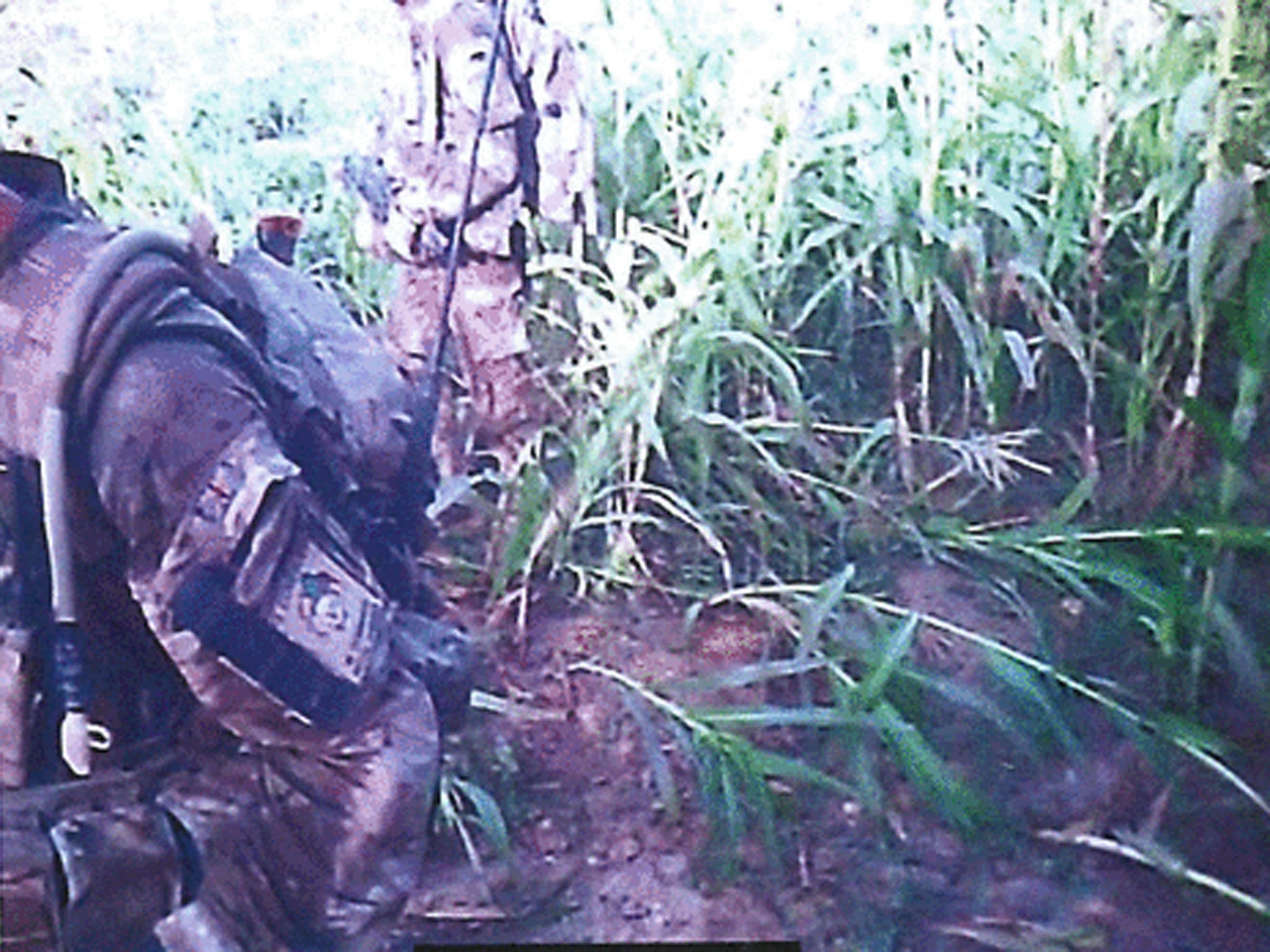Royal Marine found guilty of murder for battlefield execution of injured Taliban fighter
Sergeant shot prisoner as fellow soldier filmed killing on helmet camera

A Royal Marine who shot dead a prisoner in cold blood in Afghanistan has been found guilty of murder. The “battlefield execution” took place after a patrol found the Taliban fighter lying injured and helpless in a field.
The convicted soldier, a highly experienced sergeant, was the first member of the British armed forces to be charged with murder in relation to the conflict in Afghanistan.
Two other Marines, accused of the same charge over the killing two years ago, were acquitted following a court martial in which the centerpiece of evidence was a video film recorded by a helmet camera. The harrowing footage, which was shown in court with members of the public and the media present, was not released after the presiding judge agreed to an application from the Ministry of Defence claiming that wider dissemination would be a “recruiting sergeant for extremists”.
The defendants were also allowed anonymity on the grounds that they and their families could become vulnerable to retribution from Islamist extremists.
Tonight Brigadier Bill Dunham, the Deputy Commandant General of the Royal Marines, described the murder as “a truly shocking and appalling aberration”.
“It should not have happened and it should never happen again,” he said. “It is now for the Royal Marines to consider any impact from this case on the training given to our people as we seek to uphold the very highest standards that we constantly strive to instill and perpetuate.”
All three marines were seen in the film with the Afghan man, who had been severely wounded in a strike by an Apache helicopter gunship. In the footage the sergeant is seen firing a bullet into the chest of the man, who is covered in blood, and is heard saying: “There you are, shuffle off this mortal coil you cunt. It’s nothing you wouldn’t have done to us.” Turning to the others, he added: “Obviously this don’t go anywhere fellas. I’ve just broken the Geneva Convention.”
The sergeant, known in the proceedings as Marine A, was told by the judge after being found guilty that he faced a mandatory term of life imprisonment. He will be sentenced following psychiatric evaluation. The two freed men, Marines B and C, were told by the judge that they can return to their duties; it is not known whether they will remain in the armed forces.
The video footage was recorded by the helmet camera that, contrary to regulations, Marine B was wearing.
It was discovered on the laptop of a civilian who took it in to a shop to be repaired. The computer allegedly contained offensive images, unconnected with Afghanistan, and the police were called. They discovered scenes of a prisoner being mistreated and his captors – the Marines – discussing killing him.
The servicemen were identified, and the helmet camera seized by the Royal Military Police. This contained further footage: that of the killing. Seven people were initially arrested. After charges were laid a Facebook campaign launched against the prosecution by the marines’ supporters attracted thousands of names.
The sergeant insisted during questioning that “no one killed” the Afghan prisoner; he did not know at the time that investigators had obtained the film of him carrying out the shooting. His defence at the trial was that he thought the man was dead and that he shot the corpse out of pent-up frustration and anger.
In the film Marine C is heard before the killing saying: “I’ll put one in the head if you want.” Marine B offers: “Take your pick how you shoot him.” But Marine A cautions: “Not on his head, that’ll be fucking obvious.” Investigators also found a diary kept by Marine C. His only regret, he wrote, was that he felt “mugged off” that he had not been able to “pop off the Taliban sh*tbag” himself.
Marines B and C both insisted in their defence that they had no idea that the sergeant was going to shoot the prisoner. Marine C’s barrister maintained that what he said at the time was “stress relieving banter” and the diary was a combination of “embellishment and exaggeration”.
Marine B, a university graduate who had been with the service for only 16 months, said in evidence that he was “stunned and shocked” when the sergeant shot the prisoner. He had laughed at the time but it was “just nervous reaction”. He had lied, he admitted, to protect the sergeant when questioned by military police.
He also said he wished he had stood up to the sergeant. “I did not have the moral courage to do so,” he said.
The Service Prosecuting Authority, which brought the case against the three men, said: “With the conviction of Marine A, the Court Martial Board has sent an unambiguous message that there can be no excuse or justification for the unlawful actions described during this trial and that the consequence of such actions will be of the utmost seriousness.”
A number of media organisations are challenging the decision of Judge Advocate General Jeff Blackett to withhold distribution of the video. In another high-profile case of the killing of a prisoner by British troops – that of Baha Musa, a young Iraqi – footage of mistreatment was made available to the public via the media. The military defendants in that case, and others charged over deaths and alleged abuse during the Iraq campaign, were routinely identified.
Subscribe to Independent Premium to bookmark this article
Want to bookmark your favourite articles and stories to read or reference later? Start your Independent Premium subscription today.
